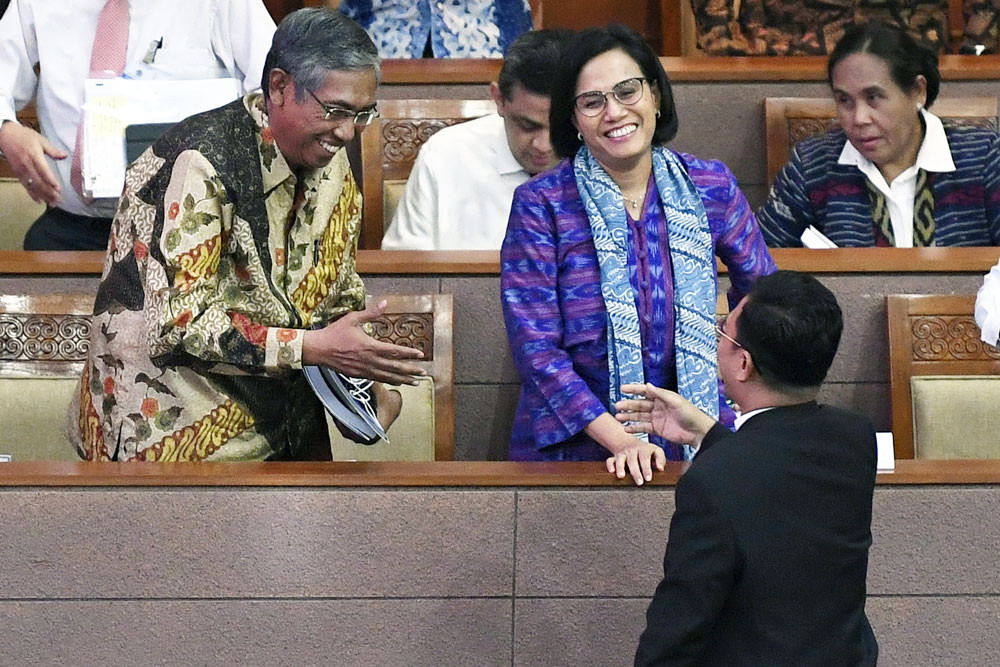Popular Reads
Top Results
Can't find what you're looking for?
View all search resultsPopular Reads
Top Results
Can't find what you're looking for?
View all search resultsCaution on fiscal deficit
Limited fiscal space is a major challenge for the government in meeting its development agenda.
Change text size
Gift Premium Articles
to Anyone
T
he government has assured the market that its fiscal management is still prudent, although the estimated state budget deficit for this year has been revised upward from 1.8 percent of gross domestic product (GDP) to the range of 2 to 2.2 percent, yet still below the 3 percent legal limit.
The main cause of the fiscal deficit is the lower than expected tax revenues, which in turn have been brought about by the lower than estimated economic growth and the weakening global growth. The Finance Ministry reported as of October that tax receipts, which contribute more than 80 percent of total state revenues, increased by only 1.2 percent, much below the 8 percent growth target set in the 2019 Budget Law.
However, many analysts share the government’s stance that given the global economic slowdown and the mounting trade protections in the international market, a wider fiscal deficit is needed to support growth.
The monetary authority fully supports the fiscal management stance. Bank Indonesia (BI) decided in November to hold its benchmark interest rate (seven-day reverse repo rate) at 5 percent, but it will take additional measures to stimulate growth by lowering the reserve requirement ratio (RRR) by 50 basis points to 5.5 percent for conventional banks starting in January.
The central bank estimated that this measure would inject an additional Rp 26 trillion (US$1.8 billion) into the banking system, which in turn will improve liquidity in small and mid-sized banks that lend mostly to small and medium enterprises. All in all, the easing of the RRR and the cumulative 100 basis-point rate cut in the BI rate so far this year are expected to inject more lifeblood into the economy through a higher credit growth rate.
However, injecting additional liquidity into the banking system is not enough. The latest data from the Financial Services Authority (OJK) showed that as of October undisbursed loans within the banking system totaled Rp 1.6 quadrillion, up 5 percent from the same period last year. This may indicate low business confidence.
Limited fiscal space is a major challenge for the government in meeting its development agenda. To create wider fiscal space, the government should optimize state revenues by maintaining an investment and business climate and improving the quality of state expenditures through more targeted programs and more efficient infrastructure expenditures. Certainly, the fiscal deficit should be maintained at the legal threshold of 3 percent and the government debt-to-GDP ratio be kept below the maximum 60 percent of GDP.
Unfortunately, the government has yet to realize the urgency and vital importance of boosting private investment through regulatory and bureaucratic reform. The government itself has admitted that the hundreds of overlapping and contradictory laws and regulations have been the biggest barrier to investment in Indonesia.
Yet the government has not acted quickly and firmly to implement the long-delayed structural reforms. President Joko “Jokowi” Widodo has instead lengthened the bureaucratic red tape and caused redundancy within his Cabinet by increasing the number of ministers, deputy ministers and senior officials without clear-cut definitions of authority and scope of responsibility.










